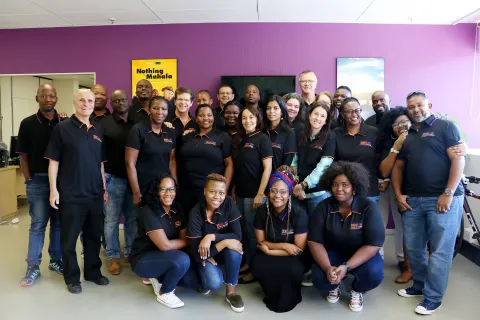How to address our fears around reconnection as lockdown eases
BlogDuring a webinar on “Reconnecting Beyond Lockdown” that was hosted by Heartlines as part of its What’s Your Story? initiative, pastor and relationship and family therapist Merrishia Singh-Naicker gave a compelling presentation about the challenges faced by families and churches as a result of the lockdown in South Africa, and how we can take steps towards reconnection.
As lockdown regulations continue to ease and people are reintegrating into social spaces, such churches, the fears of church leaders and churchgoers around the transition back into social connectedness need to be addressed.
“As we have cautiously emerged from isolation, we face challenges adapting to the new normal of living, working and playing while also following the safety regulations. Families have had to adapt to this in different ways. We’ve witnessed the resilience and creativity of people and how families have pulled through these difficult circumstances and have heard stories that have encouraged us,” said Singh-Naicker. “On social media we realised that people have skills like baking, cooking, growing veggies and they can dance and sing. We are social creatures that thrive on meaningful social connections and relationships which are critical for our survival.”
The importance of church
Singh-Naicker said the church provides an important space for social connections and that isolation created fear, anxiety and anger, and has meant that those who faced death and trauma have had to navigate these feelings without their usual channels of support.
“The lack of movement has been difficult; families have been faced by death and illness, in many cases social distancing has meant the inability to be physically present in times of crisis with pastors conducting funerals online where families were not present,” she said. “Warm embraces and weeping together, which was once common practice, is no more. People in mourning have described their experience as a double grief, experiencing their difficulties more intensely.”
Singh-Naicker explained that there are different areas of life that require interventions and support for overall wellbeing, and emphasised the need for multi-level support and interconnected solutions. These include emotional well-being and the ability to cope effectively with life and create satisfying relationships; financial well-being and being satisfied with one’s current and future financial situation; a sense of social connection and belonging with a well-developed support system; and spiritual wellbeing to expand a sense of purpose.
“We require multiple stakeholders to collaborate to provide more meaningful support for families. We are all affected and impacted differently by the pandemic and our surviving and thriving depends on our interconnectedness,” she said.
Exacerbating existing challenges
She also noted that the coronavirus pandemic magnified inequality and the existing struggles South Africans were facing, like violence, unemployment, homelessness and poverty, as well as mental health challenges which she said are prevalent in many churches and homes. She also highlighted challenges in the public health system, which was already under-resourced before the pandemic, and inequality in the education system, with learners from disadvantaged communities being excluded from school as learning went online.
“During the lockdown we witnessed an exponential rise of what the United Nations calls shadow pandemics, or parallel pandemics, of gender-based violence, climate change and environmental issues, and the urgency for us to change and do things differently,” she added.
Singh-Naicker said the church has historically been a space where people who face some of these challenges could find help, but because of the lockdown, the lack of worshipping together and getting the necessary support has made these challenges more difficult to bear.
She added that the intersectionality of our different identities as individuals, such as our race, gender, sexual orientation, nationality and even hobbies, have played a critical role in how we have experienced isolation and that they have helped us fight the pandemic. She believes that diversity and inclusion has built immunity, not only in the biological sense, but also in the sense of community, as South Africans gathered to fight existing injustices and disparities highlighted by the pandemic.
“We are all in different spaces of COVID-19, some have lost their lives. We are all affected but impacted differently, and we have to be mindful that our surviving and thriving depends on our interconnectedness, and now in our re-connectedness, we need to foster understanding and church leaders need to provide safe spaces and lead South African’s to active solidarity.”
To watch Singh-Naicker’s full presentation, you can view it here on our YouTube channel.
The Heartlines What’s Your Story? initiative aims to help families, churches and individuals re-connect through the use of story-sharing as South African’s slowly emerge out of lockdown and seek to re-build connections. Visit our What’s Your Story? Church website for resources, stories and more.
Featured
